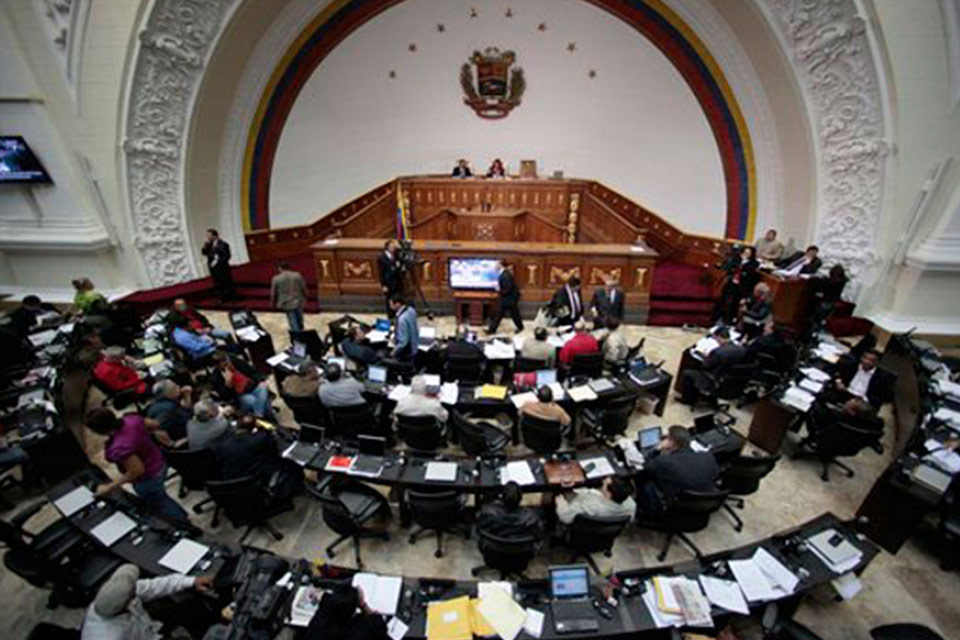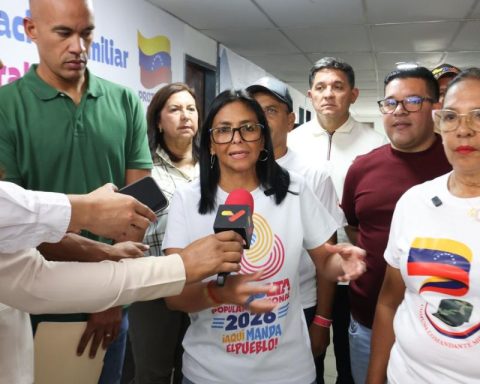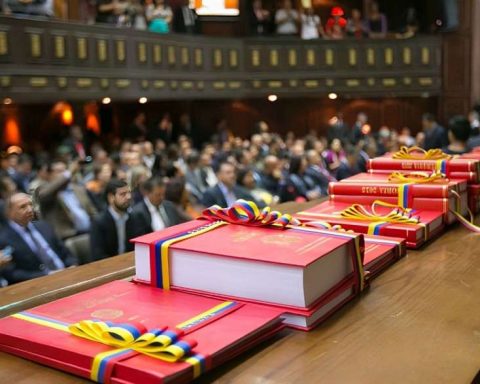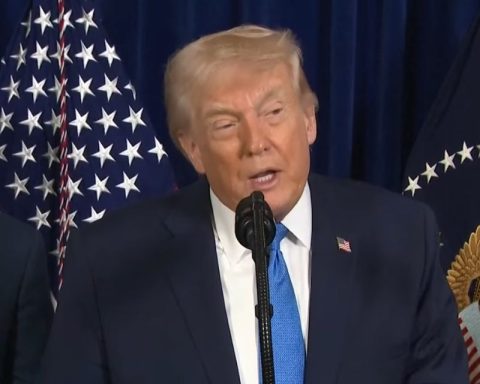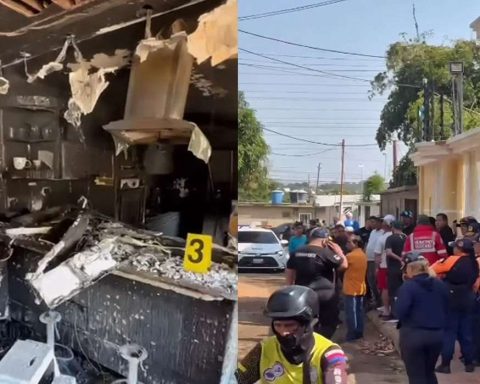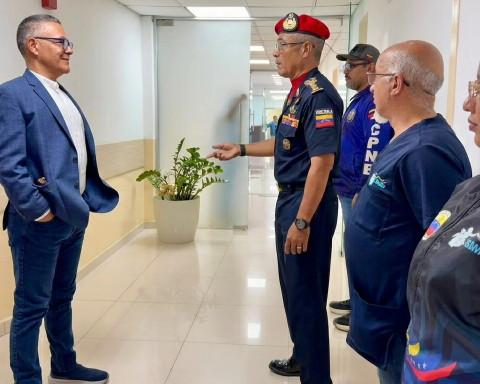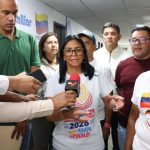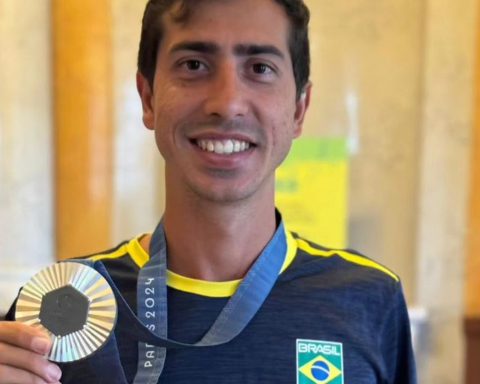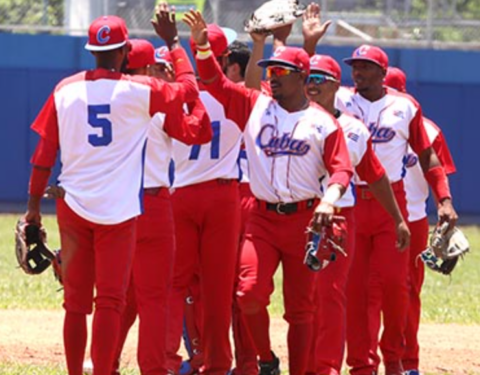In the ordinary session of this November 1, the National Assembly of (AN) 2020 approved in first discussion and by a qualified majority the Organic Law Project to Reform the Law of the Communal Economic System. The opposition bench rejected the reform project and challenged the ruling party to submit it to a referendum, arguing that it seeks to impose a Communal State
The opposition bench of the National Assembly (AN) of 2020 demanded that all political sectors of the country be allowed to participate in the dialogue processes to address the political, social and economic crisis.
The faction of the Democratic Alliance in Parliament assured that they did not feel represented by the delegation of the government of Nicolás Maduro or the opposition sector that traveled to Mexico on November 26 to negotiate.
The affirmations were made by the deputy Luis Parra (Primero Venezuela) during the discussion of the draft agreement in support and ratification of the Second Partial Agreement for the social protection of the people, signed between the government and the Unitary Platform.
*Read also: UN asks for 1.7 billion dollars to support Venezuelan refugees
“We value what came out of there (the dialogue table) as a result. The background is what moves us. There is good news for the country and it is the release of assets from Venezuela, we must insist on the fight so that this money is repatriated, “he said.
For Luis Parra, the return to dialogue that took place in Mexico reveals the opposition sector led by the president of the National Assembly in 2015, Juan Guaidó, and the fact that “they could reach an agreement for citizenship.” .
“That agreement must go further. The sectors of the active life of the country demand participation and solutions. There is nowhere, for example, an adjustment in the salary of public workers or teachers that vindicates their living conditions », he added.
The parliamentarian also referred to the issue of the migration crisis and the actions of countries receiving citizens. He called some nations “hypocrites” and urged them to stop playing with Venezuelan migrants.
The National Assembly with a Chavista majority unanimously approved the agreement in support of the Second Partial Agreement for Social Protection, signed between the government of Nicolás Maduro and the opposition Unitary Platform on November 26, in Mexico.
On the subject, the pro-government deputy Nicolás Maduro Guerra (PSUV) explained that the agreement will allow the release of resources through United Nations mechanisms that will be the object of investment. He pointed out that the different ministries have identified the areas that these resources should reach as a priority, among them are health, education and services.
“We did it again. We once again put that opposition that once advocated trying to sabotage and burn down the country and assassinate our leaders on the democratic path and the Constitution. We sat them down again and they had to accept that they recognize the government headed by Nicolás Maduro,” he stressed.
Maduro Guerra emphasized that with the agreement it comes to light that “there are resources blocked from the people by that opposition.”
The pro-government deputies aspire that with the resources released, power generation can be raised to more than 500 megawatts -although Jorge Rodríguez had said 430 in Mexico-, some 2,300 educational institutions and more than 60,000 cancer patients are attended to and the recovery of some 21 hospitals. This was what the deputy Genesis Garvett (PSUV) told the Chamber.
Opposition challenge in the AN
The opposition bench of the National Assembly (AN) of 2020 challenged the ruling party to submit to a referendum the compendium of reforms that President Nicolás Maduro urged to approve current laws on communal councils and popular power and with which it seeks to “impose a State Communal”.
The challenge was raised by deputy Luis Eduardo Martínez (Acción Democrática) during the first discussion of the Organic Law Project to Reform the Law of the Communal Economic System, in the ordinary session on November 1.
According to Martínez, the disagreement with the reform project, which was approved in the first discussion by majority, obeys the provisions of Article 5 of the Constitution, which makes it clear that Venezuela is a decentralized Federal State and is governed by the principles of territorial integrity, cooperation, solidarity, concurrence and co-responsibility.
The parliamentarian, also vice president of the special commission for Dialogue of the AN, recalled that in 2007 former president Hugo Chávez submitted a similar proposal to a referendum that the public denied. “Hugo Chávez was not afraid of the referendum. We ratify the proposal that has already been made and that these laws, which I know they will approve because they are the majority, are submitted to a referendum and that Venezuelans decide the state model they deserve,” he said.
Luis Eduardo Martínez reported that the opposition bench did not know about the reform project, but that they learned some details after the presentation of the instrument to the Chamber that the pro-government deputy Juan Carlos Sierra (PSUV), also a member of the commission, made from the speaker’s rostrum. Permanent Development of the Communes.
“The deputy made it clear that it is about implementing a different State model. We would have liked to know the bill in advance to intervene more appropriately. I reiterate, in the background of the debate that we are giving on this occasion and the reforms that remain to be discussed that Nicolás Maduro proposed are of the Communal State type.
pro-government position
On the reform project, the deputy Juan Carlos Sierra (PSUV – Trujillo) explained that it consists of 14 articles aimed at promoting productive activity. He asserted that the changes will allow civil society to enter the new “epoch” that the ruler Nicolás Maduro has called for.
During the presentation of the project, he explained that the main element of the reform is to facilitate the mechanisms for citizens to advance “in a determined manner” towards the construction of new productive schemes through collective effort.
“Today we are in an act of vindication to the people, who have resisted the ravages of the war and have taken the lead to tell the country that it is possible to build an alternative model and that it is possible to move towards the construction of a new social democratic State. of law and justice,” he commented.
According to the Parliamentarian, Venezuela is the spearhead in legislative matters in this regard. He assured that there are few precedents in the world of states that legislate in favor of citizenship.
Sierra’s argument was followed up by deputy Jesús Faría (PSUV – national vote), who ratified that the reforms obey a democratic model “that is capable of generating social justice” and guaranteeing the leading participation of citizens.
Faría dismissed the arguments of the opposition bench. In his opinion, “there is a lack of sincerity in the words of the opposition spokespersons, both the one who sits here, and the one who was seeking a coup, but who sat down in Mexico to talk (with the Maduro government on November 26 in Mexico)”.
AN talks about patients with HIV
According to the president of the 2020 AN, congressman Jorge Rodríguez, one of the first topics to be included in the dialogue table in Mexico was the acquisition of medicines to care for patients with HIV. The information was presented after his opposition counterpart Rubén Limas (AD – Capital District) urged the Ministry of Health to publicize the situation of people with this condition at the information points of the session.
“The last reference we have is unofficial data from non-governmental organizations that approximately more than 100,000 Venezuelans have the disease,” Limas said.
The parliamentarian, based on data from NGOs, highlighted that by 2019 nearly 1,800 women had it, and that only 25% of them could be tested. Limas asked the Ministry of Health to inform the country about the situation of access that these Venezuelans have to rapid and antiretroviral tests.
For his part, the deputy Eduardo Puerta (PSUV – Guárico), assured that the government of Nicolás Maduro has dedicated itself to the dignity of people with HIV.
“We urge our society on the issue of equality and the non-exclusion of patients, who are human beings who, with proper treatment, can lead a normal life. Guaranteeing the right to life is important. Today different activities are carried out throughout the national territory. We call on the country for education, prevention and awareness,” she added, on the occasion of celebrating the international day against HIV.
Post Views: 650
